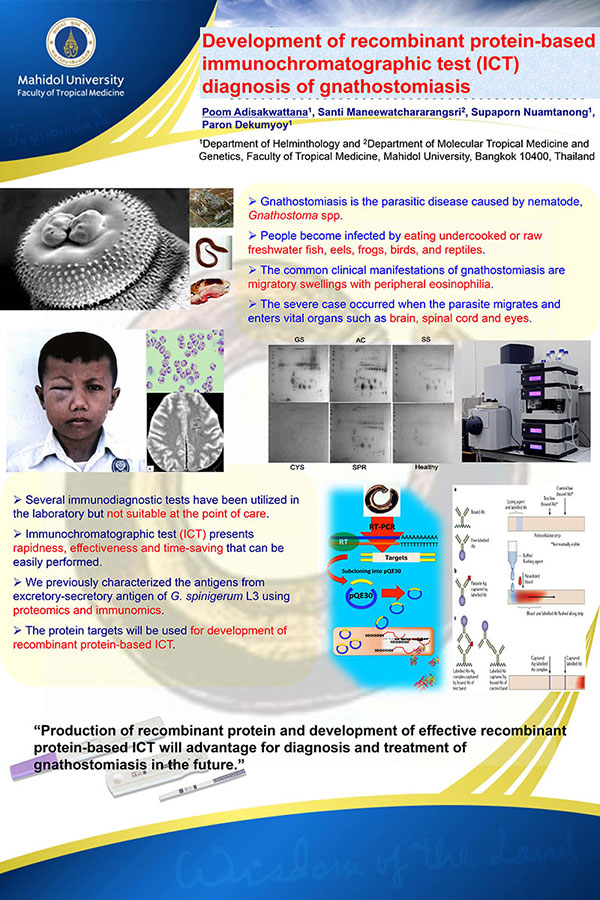Gnathostomiasis
Gnathostomiasis is the parasitic disease caused by nematode, Gnathostoma spp. The common clinical manifestations of gnathostomiasis are migratory swellings with peripheral eosinophilia. People become infected by eating undercooked or raw freshwater fish, eels, frogs, birds, and reptiles. The severe case occurred when the parasite migrates and enters vital organs such as brain, spinal cord and eyes. Several immunodiagnostic tests have been utilized in the laboratory but not suitable at the point of care. Assistant Professor Dr. Poom Adisakwattana, from Department of Helminthology, has approached this crucial problem by technique of Immunochromatographic test (ICT), which presents rapidness, effectiveness and time-saving outcome. His team had previously characterized the antigens from excretory-secretory antigen of G. spinigerum L3 using proteomics and immunomics. The protein targets will be used for development of recombinant protein-based ICT. Production of recombinant protein and development of effective recombinant protein-based ICT will advantage for diagnosis and treatment of gnathostomiasis in the future.
